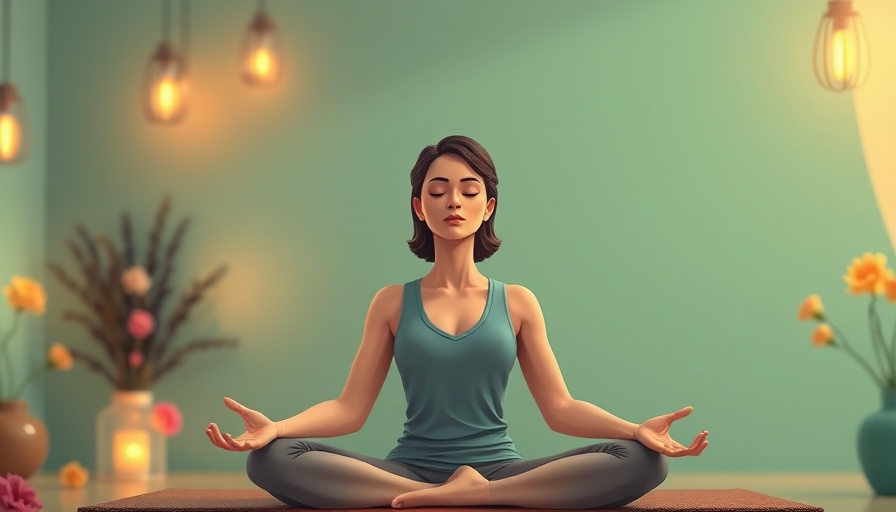
Discover the Power of Breath in Your Yoga Practice
In a world where mastering complex yoga poses often takes center stage, it's crucial to remember that the true heart of yoga lies in the breath. Practicing yoga isn’t just about looking good while executing a pose; it’s about experiencing a profound connection with our body, mind, and spirit through breathing.
The Importance of Breath in Yoga
Yoga, which translates from Sanskrit as 'to unite', integrates physical movement with breathing techniques—collectively known as pranayama. This practice is fundamental to achieving not just physical strength but also mental clarity. When we turn our focus from perfecting an asana to observing our breath, we embark on a meditative journey that enhances our entire being.
Your Breath: An Anchor to the Present
Think of your breath as a stable anchor amidst the chaos of thoughts that vie for your attention. As you practice yoga, you might have noticed how easily your mind can wander to everyday distractions like what to eat for dinner or what’s on the agenda for tomorrow. By concentrating on each inhale and exhale, you can ground yourself in the present, fostering a greater sense of mindfulness that extends beyond your yoga routine.
Experience Stress Relief Through Conscious Breathing
Focusing on the breath not only anchors the mind but also acts as a powerful stress reliever. By deepening and slowing our breath, we can calm the sympathetic nervous system—our body’s alarm system—helping us transition into a more relaxed state. Scientific studies support these benefits, showing that pranayama can reduce stress levels, lower blood pressure, and promote overall relaxation, making it a valuable tool for everyday life.
Heightened Awareness of Your Body
As you shift your focus to the rhythm of your breath, you naturally develop a stronger connection with your body. This heightened awareness allows you to assess how each pose affects your breath and vice versa. For example, you may find that your Warrior II pose causes tension in your shoulders, leading to shorter breaths. This awareness is a vital feedback mechanism that can help you adjust your practice for comfort, safety, and effectiveness.
Using Breath to Manage Emotions
Your breath can influence your emotional state more than you may realize. It’s a well-known fact that when we feel anxious, our breath quickens, and when we're calm, it becomes slow and deep. Practicing techniques like Ujjayi breath, which creates an oceanic sound while you exhale, can help soothe nerves and promote emotional regulation. This rhythmic breath can bring peace amidst turmoil, making it a powerful ally in managing your feelings.
Transforming Yoga into Moving Meditation
When your breath becomes your focal point, yoga transforms into a moving meditation, where each inhalation and exhalation becomes a mantra, guiding you deeper into your practice. Instead of simply exercising, you engage with the essence of yoga—connecting mindfully with each motion and the energy that flows through your body.
The Flow of Life Energy Through Breath
In yoga philosophy, breath is synonymous with prana, or life energy. By practicing pranayama, you control this vital energy, enhancing vitality and promoting a balanced life. Scientific research indicates that practicing pranayama can lead to benefits such as improved lung function and lower anxiety levels, emphasizing the importance of breath in overall well-being.
Embrace Breath in Your Yoga Journey
Transitioning your focus from perfect poses to the breath you're taking can dramatically enhance your yoga practice. By embracing breath, you cultivate mindfulness, reduce stress, and improve emotional management. Introducing pranayama techniques to your sessions brings depth and richness that can transform your practice.
So the next time you step onto your mat, remember: it’s not about the pose—it’s about the breath. Recognizing its power will not only enhance your yoga experience but also enrich your daily life. Your journey into mindful breathing begins now. Join a class, explore tools and techniques, and rediscover the union of body and mind.
 Add Row
Add Row  Add
Add 




 Add Row
Add Row  Add
Add 

Write A Comment